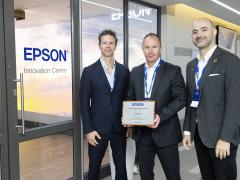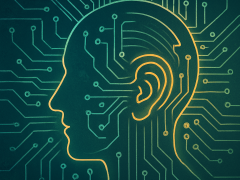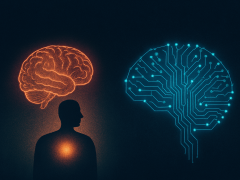No matter where you look, someone, somewhere is discussing artificial intelligence right now. As exciting as the technology is, it is understandable that workers around the world are worried. AI presents a very real threat to jobs, with PwC forecasting that 44% of global workers with low education will be at risk by the mid-2030s.
Based on its findings, the consulting solutions company indicates more men will be affected in the long run as machines replace manual tasks traditionally performed by males. However, it is women who will be most impacted initially due to their higher representation in clerical and administrative functions. Investment bank Goldman Sachs has put job losses at some 300-million in the next decade.
Yet this is only one side of the debate.
The same PwC analysis suggests that the implementation of AI and other smart automation has the potential to contribute up to $15-trillion by 2030 due to greater productivity. It adds that as much as employment will be lost, jobs will also be gained as needs change in the AI world.
What is missing from all these equations, however, is the aspect of human empathy, which remains a vital part of doing business and is a key differentiator in creating value for clients.
“Attention to detail, precision, accuracy and meaningful visibility are just some of the enablers needed when servicing clients,” says Marcus Ellappan, Operations Director at Bidvest International Logistics (BIL). “In an industry where competition is aggressive, meeting client KPIs and adding value to their supply chain could lead to a long-term partnership with the client.”
Ellappan’s colleague Rhett Oertel, who heads BIL’s sales division, agrees that there is simply no substitute for personal interaction in building relationships. While AI is based on logic and data, the essence of excellent customer service is a “feeling” that arises between service provider and client when looking for solutions. “I believe AI could possibly help with suggestions to these problems by analysing data or scenarios, but, ultimately, it’s the people who will decide,” Oertel says.
For the moment and foreseeable future, the human ability to put oneself in a client’s position will enable a business to gauge the impact every decision has on the customer’s operation.
“By showing empathy, you are able to get a better understanding of client needs and challenges. Logistics and supply chains don’t always go as planned, so one needs to be able to provide reassurance, show understanding and then offer effective solutions to these problems. In the end it also builds trust,” Oertel says.
The experts point to key skills needed to optimise effective client relationships. They include:
- Proactive communication;
- A problem-solving mindset;
- Responsiveness;
- Expertise;
- Empathy & understanding;
- KPI adherence;
- Joint value creation; and
- Ongoing quality Improvement projects
At the same time, Ellappan and Oertel urge businesses not to fear automation and AI capabilities since they can be very useful.
“It’s important to remember that AI is here to stay and we will have to develop complementary skills so we can maximise the benefits of people working with AI,” Oertel says.
“We should not be afraid of testing it and using it in scenarios. AI can and will have an impact on our day-to-day working environment, but I really do believe we could use it to make decisions quicker, test different scenarios, give quicker feedback and ultimately take over the mundane parts of a job, allowing us to focus on the more value-adding activities.”
Ellappan likens the advent of AI to the introduction of wheels on a suitcase. This innovation, while subtle, created convenience in that it reduced the manual effort of carrying luggage around. Similarly, with digital transformation becoming a key focus area in business today, one has to keep up with innovation and technology.
“From big data to AI to robotics and machine learning, manual tasks are becoming automated. Getting to understand the data from the automated process is imperative for all. Data-driven decisions will be the key to producing solutions to improve customer service and costs.”PwC says governments and businesses will be required to work together to help people adjust to the new technologies, and it will be imperative to establish a culture of adaptability and lifelong learning to spread the benefits of AI across society.














